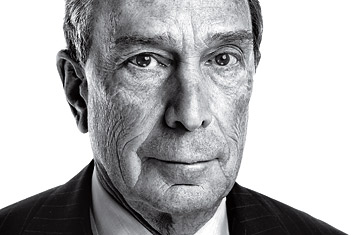What he or she should do:
It’s not enough that we elect someone who will defend the religious liberties of Christians. The next president needs to be sensitive to the interests and concerns of many groups who find themselves increasingly in tension with one another and the State: Muslims, atheists, Christians, the LGBTQ community, immigrants, black people, poor white people, and law enforcement. There will be laws, court rulings, and policies established in the next presidency that will help define how these groups live together in the near future. We can expect decisions concerning anti-discrimination laws, illegal immigration and refugees, gender and sexuality in public education, religion and gender in the military, and criminal justice reform. One of the most prized qualities in presidential candidates should be a desire to pursue principled pluralism, not merely protecting the interest of one group.
Sounds like the Bishop of Springfield should be the one:
Still there are others who have distanced themselves because they feel unwelcomed. The reasons here can vary, but key among them are race and cultural differences, a sense of gender inequality as well as sexual orientation.
Others have been treated unkindly, impatiently, or rudely by clergy, religious, ministers, and staff of parishes — all which is unacceptable. I ask your forgiveness. I make my own the words of Pope Francis, and say to you, “Believe me, in spite of its slowness, the infidelity, the mistakes, and the sins that may have and may still be committed by those who compose the Church, it has no other sense and aim if not to live and witness to Jesus: He has been sent by (the Father) ‘to bring good news to the poor … to proclaim release to the captives and recovery of sight to the blind, to let the oppressed go free, to proclaim the year of the Lord’s favor.’” (“An open dialogue with non-believers” La Repubblica, 9/11/13).
This Jubilee Year of Mercy allows us an opportunity to acknowledge our need as a diocese for forgiveness and healing from past sins and hurts, as well as to look forward to the future in hope.
That is what evangelization is all about, looking forward to the future with hope, sharing our hope which is the Good News of Jesus Christ with others, regardless the path of life they walk.
“Evangelizing,” as Blessed Pope Paul VI once said, “means bringing the Good News into all the strata of humanity … both the personal and collective consciences of people, the activities in which they engage, and the lives and concrete milieu which are theirs” (Evangelii Nuntiandi, 18).
The Holy Father went on to explain, that “evangelization loses much of its force and effectiveness if it does not take into consideration the actual people to whom it addresses, if it does not use their language, their signs and symbols, if it does not answer the questions they ask, and if it does not have an impact on their concrete life”(EN, 63).
This fact came across clearly in our diocesan survey. As one person commented, “I believe there is a huge gap between what the priests are doing and what the people need.” Others noted the need for “priests of the diocese to get out among the people … where they are at” because “people are not just going to walk into the churches and rectories.”
There is much truth to these honest reflections; our communities must be inviting and energetic environments, founded both in our traditions but also the reality of everyday life. Such efforts are not just the responsibility of some of us but rather all of us: clergy, women and men religious, lay faithful … we are all in this together; evangelization is, for each and every one of us, our call and responsibility as the baptized. We need to evangelize those who are with us each week for Mass, that they, in turn, may be empowered to become evangelizers themselves.
We need to evangelize those who were once, but are no longer with us: We need you, we need your presence, your gifts and your talents. We need you to complete our community, to enrich it, to
make it better and more effective. I would ask you to join with us as a diocese in rediscovering your spiritual roots. While acknowledging disagreements or negative experiences, perhaps we can also reflect on what it was about the Catholic faith you may have loved, what may have brought you comfort and peace, and what you are missing through your absence.


What if the “one group” I want to cater to is the Constitution?
Oh right, check my privilege.
LikeLike
And then there is Christianity:
“Now after John had been taken into custody, Jesus came into Galilee, preaching the gospel of God, and saying, “The time is fulfilled, and the kingdom of God is at hand; repent and believe in the gospel.” (Mark 1:14-15).
LikeLike
Trump’s a Presbyterian, DGH. He will represent you!
LikeLike
Not sure at this moment which of Trump or Sanders will help bring in a premill Kingdom by their 2nd year of Administration
praying and watching…
LikeLike
Or even more so a postmill, which may be more on people’s minds at Old Life
press on
LikeLike
Rook, I’ve never filed for bankruptcy.
LikeLike
Trump is the number one presbyterian https://www.youtube.com/watch?v=Op-8YkW-gXo
LikeLike
Franklin Graham agrees with Al Sharpton that Jesus never gave instructions to the pope on what questions to ask would be magistrates who won’t take instructions from Jesus about leaving the wrath to God.
http://www.greenvilleonline.com/story/news/politics/elections/2016/01/29/gop-candidates-headed-forum-bju/79525820/
LikeLike